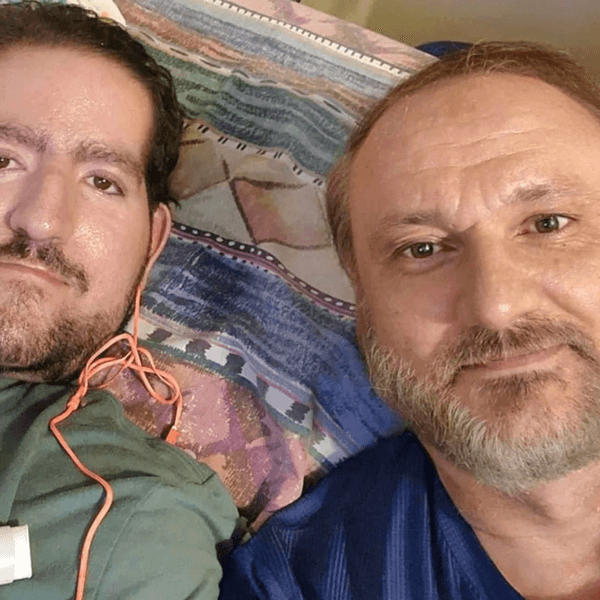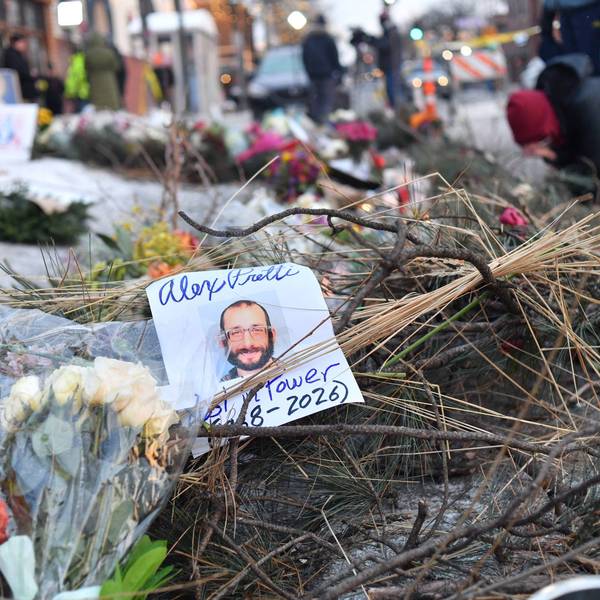Any effort to improve the lives of black men that meets with the hearty approval of Bill O'Reilly ought to set off a few alarm bells. But My Brother's Keeper, an initiative announced by Barack Obama in February, was received benignly by the corporate press, with the closest thing to criticism being "Should he have acted earlier?" (ABC This Week, 3/2/14).
Reports displayed a telling vagueness. MBK was described as "a program aimed at giving young men of color a shot at success" (NBC Nightly News, 2/27/14), an effort "to reverse underachievement among young black and Hispanic males" (AP, 2/27/14) and as "commitments from foundations and businesses to help keep young minority men in the classroom and out of prison" (Washington Post, 2/28/14). ABC's Diane Sawyer (2/27/14) called it "a plan to help kids succeed, even when they're angry and have made mistakes."
Serious sounds were made about the problem George Stephanopoulos (This Week, 3/2/14) presented as "the fact that young black men are more likely than other Americans to drop out of school, be sent to prison or end up murdered," but with little interest in ascertaining just how MBK, with its focus on mentoring, or "high standards and up-close motivation" (CBS Evening News, 2/27/14), would address it.
Myriad deeper questions were left to big media's margins. USA Today (3/3/14) ran Tavis Smiley's critique that "what these young brothers really need is not so much to be 'kept,' but to have their humanity and dignity respected." A Chicago Tribune source (2/28/14) likened the plan to "a band-aid on a gunshot wound."
The New York Times (3/12/14) noted such core concerns as MBK's exclusion of women and girls, its reinforcement of patriarchal norms and its reliance on philanthropic noblesse oblige over government action, but consigned them to its "Room for Debate" feature.
Independent media gave critics more space. The Nation's Mychal Denzel Smith (2/28/14), for example, suggested that despite some admirable aspects, MBK
ignores the root problem. We can turn every black and brown boy into a "respectable" citizen. But the moment we do, the rules for what constitutes "respectable" will change. That's how racism works.
At Salon (3/6/14), Brittney Cooper called out the proposal's male-only focus, given that black women and girls fare as poorly and even worse in some ways, including the fact that "single black women have the lowest net wealth of any group, with research showing a median wealth of $100."
But it's not surprising that corporate reporters, in the main, saw little to question in the idea that entrenched socio-economic disparities could be meaningfully addressed without systemic change or even new resources, that the fundamental problem facing men of color is "broken" families in need of a dominant male, and that a proper point of emphasis is that, as Brian Williams (NBC Nightly News, 2/27/14) explained, "they cannot blame the circumstances of their birth."
These media have a long, inglorious history of singling out black males as "superpredators" (Extra!, 1/98) and shiftless grifters, and in some ways the "uniquely endangered" black male is a variant rather than an antidote to that pathological depiction. The narrative may start by talking about "hurdles" black men face, but on examination it generally locates those obstacles within black men themselves, including those who, as Stephanopoulos put it, "end up murdered."
When Michael Brown--with a father in his life and accepted to college--was shot dead in the street in Ferguson, Missouri, by a white police officer, corporate media had a chance to revisit the assumption that what black men need most is a mentor. But rather than question the analysis they'd embraced, media instead found everything "new." Suddenly we learned that US police forces are militarized! Some police disrespect black people! Different communities have different experiences!
That's not to belittle media coverage, which was better than it might have been. There was the predictable culture-blaming, from the predictable quarters. (See MBK booster Bill O'Reilly--8/26/14--who dismissed protesters' concerns because the idea of white privilege is a "big lie," expounded by "race hustlers.") But when you can find a column headlined "In Defense of Looting" in the Daily Mississippian (8/26/14), you know it's not quite business as usual.
USA Today (8/15/14) reported on the incidence of killings by police (at least 400 a year) and decried the lack of reliable data. The Christian Science Monitor (8/21/14) explored the damage inflicted by St. Louis segregation and white flight. The New Republic (8/20/14) explained the particulars of "self defense" laws in Missouri and elsewhere that, combined with "entrenched racial and occupational biases" make homicide convictions of police officers like Ferguson's Darren Wilson "basically impossible." All of this helpfully moves the conversation from black people's "feelings" to demonstrable facts.
But big media don't really have themselves to credit for the elevation of Brown's murder beyond lamentable anecdote. They were largely reacting to the vigorous public outcry, and to the Ferguson Police Department's especially heavy-handed response, including assaults on reporters themselves. And they were struggling to keep up, as those following the story turned instead to Black Twitter and other online sources for news and perspective. (CounterSpin, 8/22/14)
Now mainstream media are asking whether Ferguson will be a "moment" or a "movement" for black activists, but they might more appropriately ask the same of their own engagement with the issues Ferguson puts on the table. As Salon's Cooper (8/26/14) put it, real progress would entail
a real commitment to due process, protection of voting rights, a livable wage, the dissolution of the prison/industrial complex, funding of good public education at both K-12 and college levels, a serious commitment to affirmative action, food security and full reproductive justice for all women. Those are the kinds of conditions under which black communities, and all communities, could thrive.
A failure to see things on that scale, to treat what we're now calling "Ferguson" not as aberrant but as reflective of US social systems and institutions, risks setting us back to appeals to individual betterment, the "pull up your pants" logic critics see in MBK.
And not insignificantly, a focus on the individual over the structural tells white people that racism is a personal thing they "just don't understand" and therefore can't fight, that progress is a zero-sum game in which there's nothing people of conscience can do together. Recognition of the irreducibility (beyond class, culture, clothing or family structure) of anti-black racism is laudable and overdue. But it need not erase the non-black anti-racists who could be engaged in resisting policies and practices that overwhelmingly hurt people of color, like, for just one example, the practice of funding police departments with low-level warrants that target the poor--as spotlighted by the Daily Beast's Michael Daly (8/22/14), who is white.
Ferguson could be a turning point for media coverage of racism. But should corporate media "forget" what they now suggest they are learning--as they have after previous "moments" (Extra!, 7/92, 8/06) the good news is that every day more people are talking around them, and moving forward without them.



